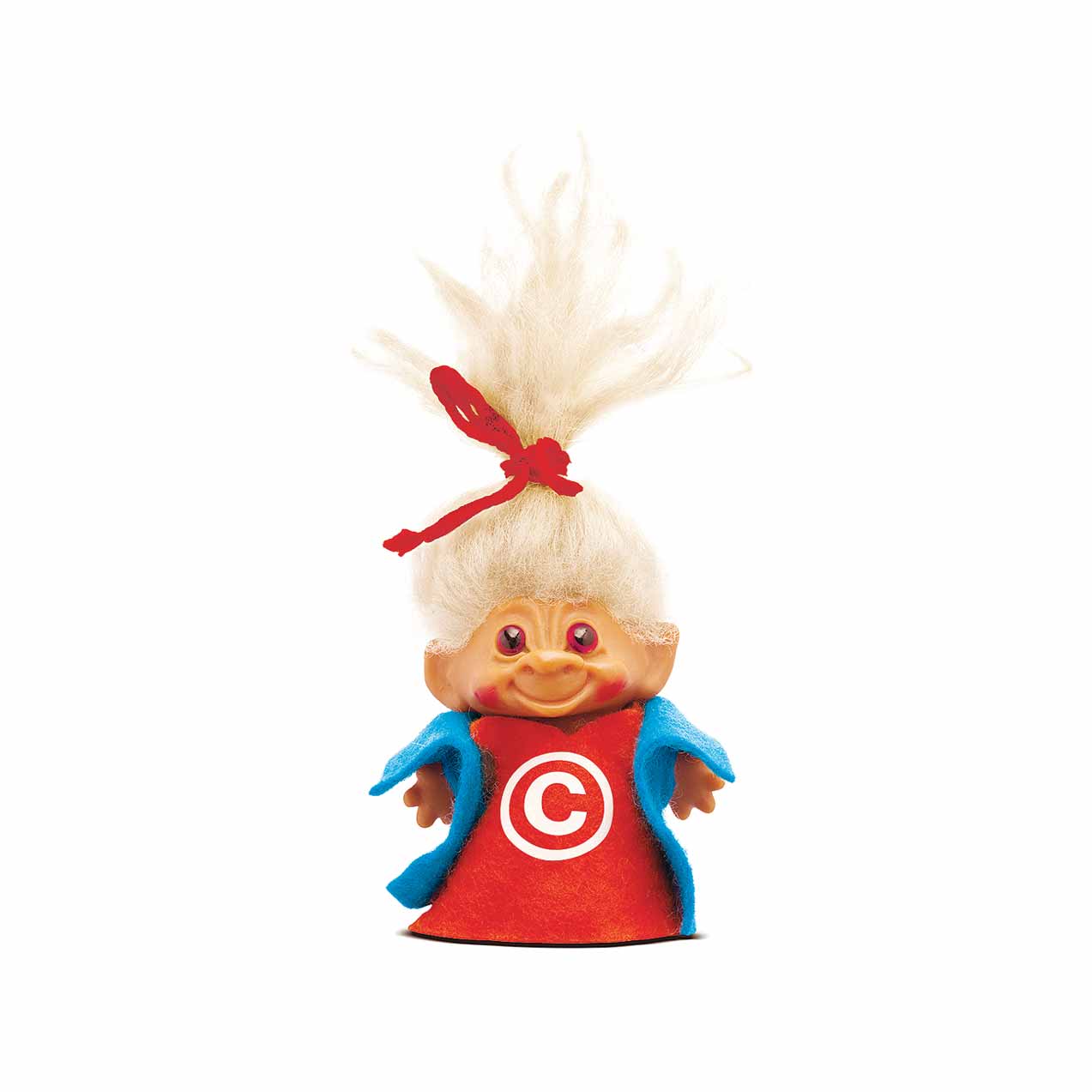
When you start a business you have to do due diligence, like finding out what due diligence is. From what I’ve gathered, it’s exactly like diligence except it requires people to say “do due,” which I’m guessing amuses the business community.
I also found out that if I’m going to start a humor website–which I’m considering, since there are not enough websites–I’m going to have to deal with patent trolls. These are entities that don’t actually make products but own patents for vague ideas and send out mass letters threatening to sue unless you pay them. There are a lot of them, mostly because while the federal government issued fewer than 78,000 patents a year from 1966 to 1986, it has handed out more than 250,000 in each of the past two years. Someone apparently got sick of looking at that big “pending” pile and just stamped them all.
To get started, I began looking into the trolls who would affect my business the most. Getting in touch with them to find out how much they wanted was surprisingly difficult, since the patents are owned by shell companies owned by other shell companies, none of which have readily available websites, phone numbers or employees for angry people to get in touch with. This is exactly how I plan to run my humor website.
Eventually I tracked down Brad Liddle, the lawyer representing Personal Audio, which has a patent that it claims relates to podcasting, which is something I’ll probably do as part of my website since talking is even easier than writing. He said I’d have to sign a nondisclosure agreement to find out how much Personal Audio wanted from me, which I refused to do, since as a journalist I believe that free information is a key tenet of democracy. Also, it sounded as if signing it might involve using a fax machine.
So I called some of the victims instead. Comedian Adam Carolla, who has raised $400,000 to wage a case against Personal Audio, said the company was asking for a penny a download–about 40% of what he has netted over the past five years. Marc Maron, who also got a letter from Personal Audio, told me I wouldn’t be able to afford that kind of money, based on my potential podcasting revenue. “I know you’re the fancy, back-page-of-TIME guy, but how much are you going to make?” he asked. It’s way less than he even thinks, since I’m now the next-to-last-page-of-TIME guy.
My business might also have to scan documents for emails, for which troll MPHJ Technology, according to news reports, would charge me $1,000 per employee, which is significantly more than I was planning on paying my employees. I’d also provide free wi-fi to visitors who ask, since not doing that requires you to waste a lot of time pretending you can’t remember your password; Innovatio apparently asks coffee shops and other businesses for $2,300 for that right. In case my site did any “news-release generation”–despite my not having generated any news in 17 years of writing for TIME–I could be asked for $250,000 by Gooseberry Natural Resources LLC, according to Drew Curtis, the founder of Fark.com, who settled with the company and heard from others that it had asked for that amount. Sending links on texts with news items could require me to send $750,000 to a licensing company. Allowing people on my site to message one another could require me to pay $300,000 to Unified Messaging Solutions. This was starting to add up.
My only hope was that the government would end all this before I put my site up. But while the House passed an anti-patent-troll bill with unusual bipartisan support (325 to 91) and the President argued for patent reform in his State of the Union address this year, the Senate Judiciary Committee shelved it on May 21, likely because of pressure from pharmaceutical companies and trial lawyers, causing me to move some investments to pharmaceutical companies and law firms.
When I asked a co-sponsor of the bill, Representative Jason Chaffetz (Republican of Utah), why the Senate punted, he said, “They don’t do anything in the Senate, so they have to keep their reputation going. Other than their Wednesday bingo and wheelchair races, I don’t know what they do.” The trolling situation is so bad, Chaffetz said, that an executive from J.C. Penney spoke at the House hearing. “When J.C. Penney gets sued for being innovative in technology, we’ve got a problem,” he said. Chaffetz is going to have a big role on my humor site.
When I asked Chaffetz what I should do to protect my business, he told me I was screwed and could either pay the trolls or pay the Mafia to take care of them. I decided to go with paying the trolls. But in total, my humor site would have to pay $1,302,300 plus $1,000 per employee, 40% of my podcast revenue and 0.6% of my app revenue. This is much more than the budget for my entire site, which I’d mostly allocated toward marijuana, marijuana paraphernalia and relocation to Colorado. I’m just hoping my pharmaceutical investments can cover it.
More Must-Reads from TIME
- Cybersecurity Experts Are Sounding the Alarm on DOGE
- Meet the 2025 Women of the Year
- The Harsh Truth About Disability Inclusion
- Why Do More Young Adults Have Cancer?
- Colman Domingo Leads With Radical Love
- How to Get Better at Doing Things Alone
- Michelle Zauner Stares Down the Darkness
Contact us at letters@time.com